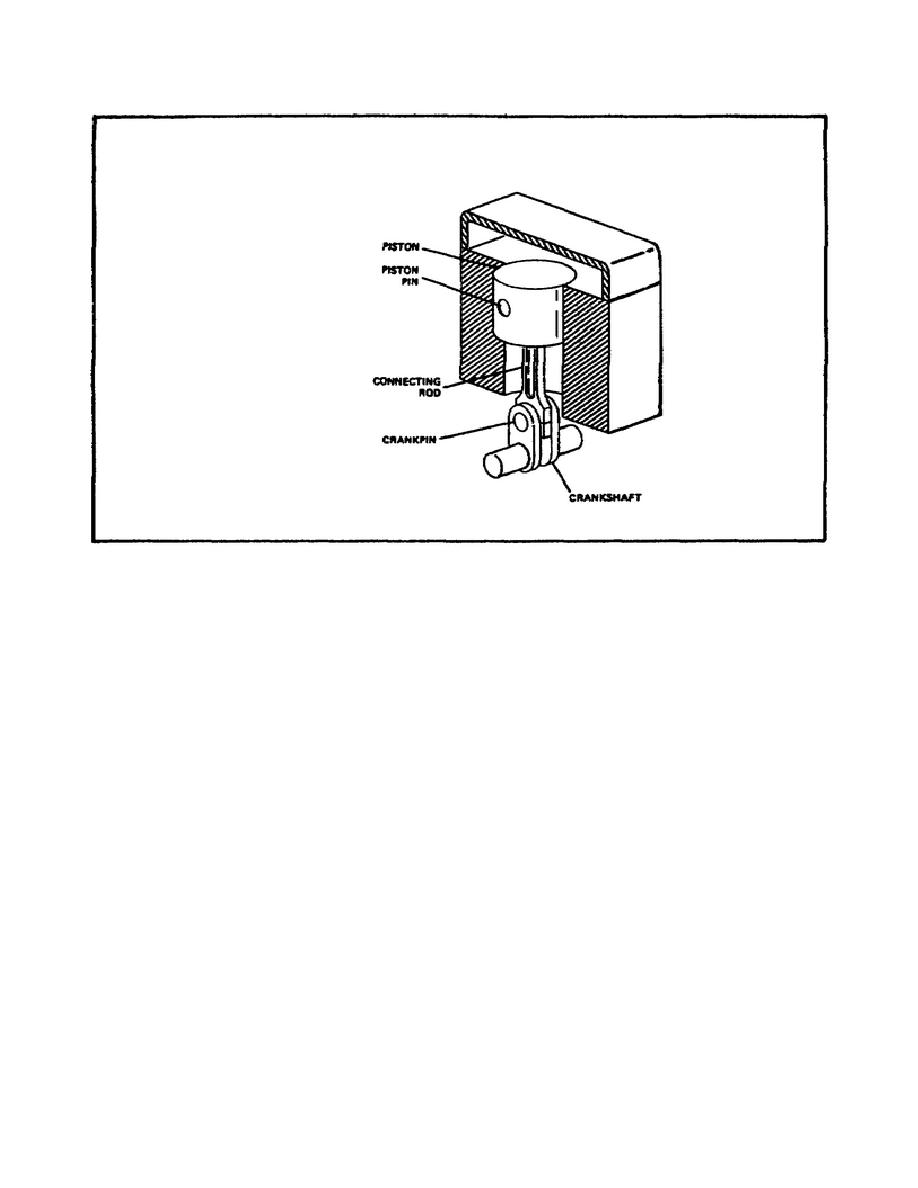
PRIN. OF INTERNAL COMBUSTION ENGINES - OD1619 LESSON 1/TASK 1
FIGURE 3.
PISTON AND CRANKSHAFT.
illustrates how the piston and the crankshaft are connected through the connecting
rod and the crankpin. Figure 4 on the following page illustrates how reciprocating
notion of the piston is changed to rotating motion of the crankshaft.
A more detailed explanation of the parts that perform this
reciprocating
and
rotating motion will be described in paragraph 3 on page 15.
(3) Intake and Exhaust.
If the engine is going to operate, the fuel and air
mixture must be fed into the combustion chamber.
The burnt gases also must be
exhausted. To accomplish this, there is a passage to the combustion chamber called
the intake port, and a passage from the combustion chamber to the exhaust system
called the exhaust port. A simplified arrangement is shown in figure 5 on page 6.
By putting openings in the combustion chamber, a problem is created; the force of
the burning fuel and air mixture will be lost through the exhaust and intake ports
rather than used to push down the piston.
To solve this problem, there must be
something that opens and closes the intake and exhaust ports to the combustion
chambers.
To accomplish this, a valve is added to each of these ports; these
valves are called the intake and
4




 Previous Page
Previous Page
